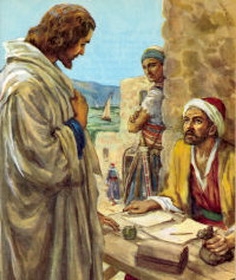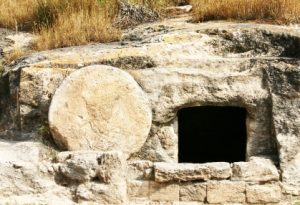Mark – Peter’s Eyewitness Gospel

The early church is unanimous that the Gospel According to Mark was written by John Mark. (Acts 12:12; Acts 12:25; Acts 13:5; Acts 13:13; Acts 15:37; Colossians 4:10; 2 Timothy 4:11; Philemon 24)
Papias – c. 140 quotes an earlier source saying:
- Mark was a close associate of Peter, from whom he received his information. (1 Peter 5:13) Peter regards Mark with such warmth and affection that he calls him his son.
- This information didn’t come to Mark as a finished, sequential account of the life of Jesus, but as the preaching of Peter – preaching directed to the needs of Christian communities. Mark accurately preserved this material and arranged and shaped it.
The title “According to Mark” appears in all the ancient canonical lists and many ancient manuscripts, and is thought to have been added very early in the history of the text.
Early church fathers all affirm Mark wrote the Gospel:
- Papias (140)
- Justin Martyr (150)
- Iranaeus (185)
- Origen
- Tertullian
- Clement of Alexandria (195)
- Eusebius (326) – quotes Papias saying “elder” (John) attributed to Mark
Second and third century books falsely claimed apostles as authors rather than secondary figures such as Mark.




